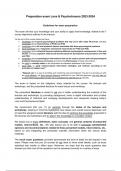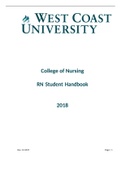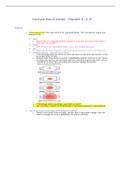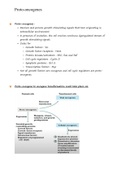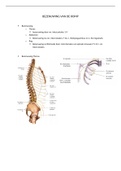Summary
Summary Summarizing questions on all lectures, workshops and the corresponding literature of the Loss & Psychotrauma course
- Course
- Institution
This document consists of summarizing questions on all lectures, workshops and the corresponding literature of the Loss & Psychotrauma course. Different main subjects (such as 'loss/grief/PGD', 'psychotrauma/PTSD', and 'sexual trauma') can be recognised with different colours (explained on one ...
[Show more]
